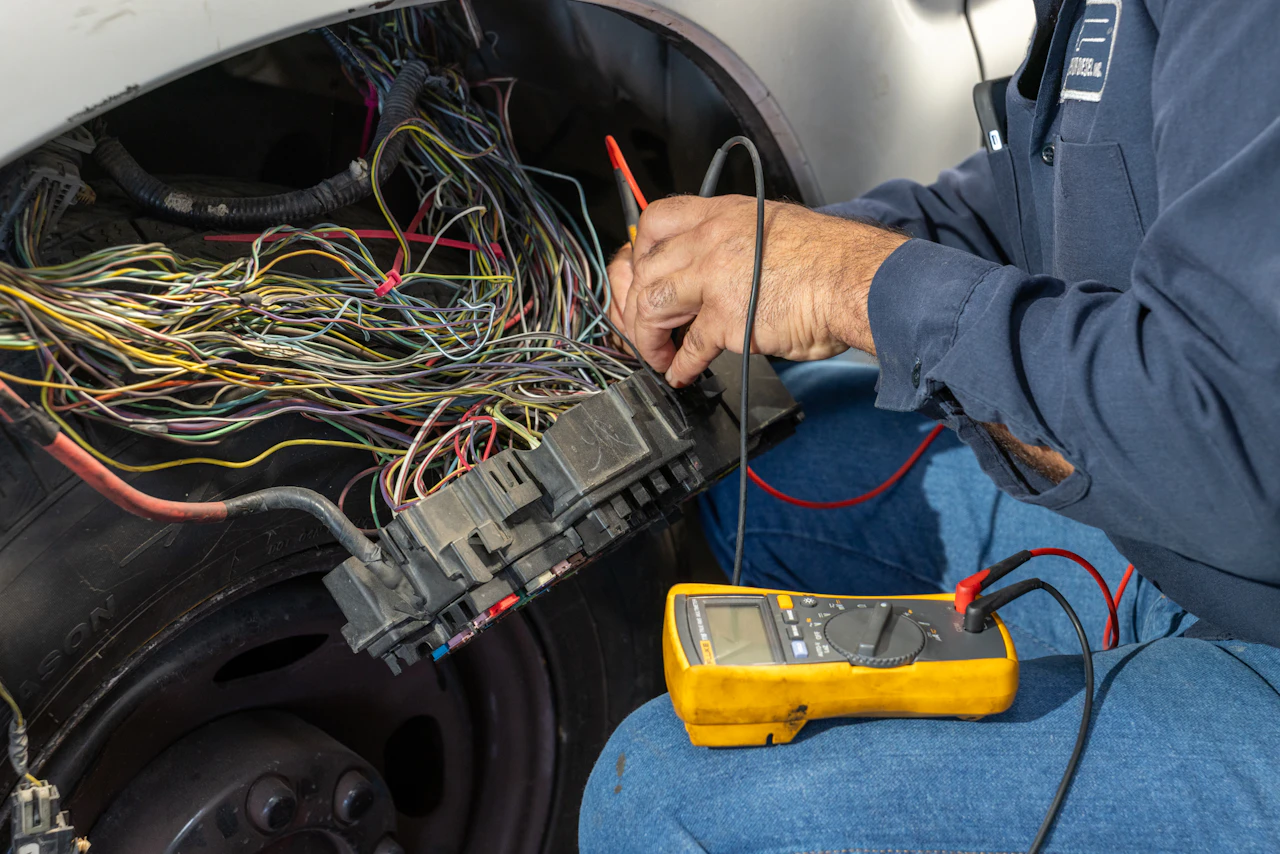Diesel trucks are built tough. Whether it’s a Kenworth or a Peterbilt, you can rely on it to get the job done. But even the burliest rig is only as strong as its electrical system. From delayed starts to full-blown power loss, electrical problems can silently kill your performance. And here’s the kicker: these issues often masquerade as mechanical problems, costing you time and money chasing the wrong fix.
Let’s break down the 7 most common electrical issues that could be dragging your diesel truck down. But we won’t stop there. We offer pro tips to help prevent electrical problems before they stop you in your tracks.
The Louisiana Factor
Louisiana’s hot, humid, and sometimes downright soggy environment creates a perfect storm for electrical corrosion and component fatigue. Whether you’re hauling down I-10 or stuck in Baton Rouge traffic, make sure your truck’s electrical system can handle the heat.
Preventive maintenance goes a long way down here. Don't wait until you're stranded on the side of the road with a dead dash and a trailer full of cargo.
1. Weak or Failing Battery
The main culprit for electrical problems in your heavy-duty rig is the battery. If it’s not delivering the right voltage, you’ll notice sluggish cranking, dim lights, or outright failure to start. Diesel engines demand serious cold cranking amps (CCA), especially in Louisiana’s unpredictable weather.
A battery near the end of its life might hold a charge in the shop but collapse under real-world loads. Keep an eye out for corrosion on terminals and test voltage regularly.
Tip: Always use heavy-duty, deep-cycle batteries designed specifically for diesel trucks.
2. Faulty Alternator
A lot is riding on your alternator’s performance. It’s the workhorse that keeps everything running once the engine’s fired up. It recharges the battery and powers all the electronics. But when it starts to fail? You’ll see flickering lights, warning indicators, and eventually a truck that won’t start because the battery’s drained.
A slipping serpentine belt or worn-out bearings can reduce alternator output without full failure, making this issue particularly sneaky.
3. Bad Ground Connections
Let’s talk grounds. A poor ground connection increases resistance and disrupts current flow, leading to erratic behavior such as intermittent no-starts, faulty sensor readings, and even engine misfires.
Corroded or loose grounds are especially common in humid or coastal areas, like Louisiana, where moisture can erode metal over time.
Pro Tip: Inspect ground straps and clean contact surfaces annually.
4. Worn or Damaged Wiring Harness
Between the heat under the hood and years of vibration, it’s no wonder the wiring harness can take a beating. Worn insulation, rodent damage, and cracked connectors can interrupt signals or create shorts.
Symptoms vary widely depending on the affected circuit. You might notice anything from a dead fuel injector to a mysterious no-crank.
What can you do: Use a multimeter to check continuity, and look for chafing where wires contact engine components or frame rails.
5. Malfunctioning ECM (Engine Control Module)
The ECM is your truck’s brain. When it starts to glitch, whether due to an internal failure or a poor power supply, you can expect a drop in performance, rough idling, or even limp mode.
Diagnosing ECM problems can be tricky, as symptoms often mimic mechanical faults. A scan tool can help, but in some cases, bench testing or reprogramming is necessary.
Watch out for: Trouble codes that don’t match symptoms, or multiple unrelated codes popping up together.
6. Sensor Failures
Modern diesel trucks rely on a network of sensors to optimize performance and emissions. When sensors go haywire, the ECM gets false data and your engine responds accordingly.
Common culprits include:
- MAP Sensor: Incorrect boost readings can limit power.
- MAF Sensor: Miscalculates fuel delivery.
- Crankshaft Position Sensor: A failing sensor can prevent the engine from starting.
And the common causes of these issues are dirty connectors and heat-related degradation.
7. Glow Plug Circuit Issues
When the cold hits, glow plugs are crucial to getting your diesel engine started. A failed glow plug, faulty relay, or damaged control module can lead to hard starts or complete failure. And no one likes that, especially first thing in the morning.
But here’s the twist: even in warmer climates like Louisiana, a bad glow plug system can still cause rough idling and white smoke on startup. Don’t overlook this system just because it’s not freezing outside!
Quick Tip: If you’re seeing extended cranking times, test each glow plug with an ohmmeter.
What You Can Do About It
Staying ahead of maintenance will go a long way to keeping your truck running. If you aren't sure where to start, here’s your action plan:
- Start with the basics. Load-test the battery, check alternator output, and inspect terminals.
- Use a scan tool. Even a basic OBD-II scanner can help you identify trouble codes.
- Inspect connectors. Moisture and vibration wreak havoc on plug-in terminals.
- Keep a maintenance log. Tracking symptoms and repairs helps identify patterns.
While electrical issues may not be as obvious as a blown turbo or broken axle, but they’re just as capable of sidelining your rig. From weak batteries to failing sensors, each component plays a critical role in keeping your truck performing at its best.
Staying on top of your electrical system isn’t just smart—it’s essential for uptime, safety, and peace of mind. Be sure to book your truck’s preventive maintenance visit to keep electrical issues at bay.

.svg)
.svg)
.svg)